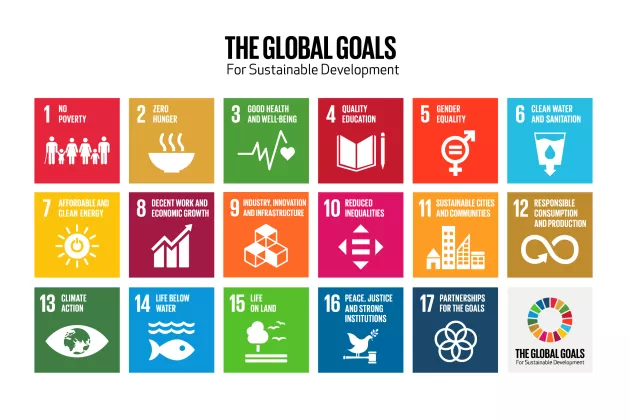Why is tagging of Global Goals being introduced in LUCRIS?
The University sees an increased need to position research in relation to the UN’s Global Goals, both within the University and in its dialogue with the wider world. By linking our research to the Global Goals in LUCRIS, and by extension in the Research Portal, we increase awareness among external groups of the entire University’s sustainability-related work. Sustainability is an important issue for decision-makers, funding bodies and potential students. The sustainability aspect is also important in connection with rankings.
Tagging also has considerable importance internally, for example in finding relevant collaborative partners from other faculties for applications to interdisciplinary projects or in finding suitable teaching staff for sustainability courses and making it easier for students to locate research for projects on sustainability issues.
As a researcher, you can use the function to highlight your research and expertise, if it contributes – or has the potential to contribute – to one or more of the Goals. It can strengthen a profile in connection with applications or collaborative projects. It also contributes to an overview of the University’s research and the overall knowledge generation relating to the Global Goals.
This function will be visible in LUCRIS on 30 August, so it is important that researchers ensure that tagging is correct before it is published in the Research Portal in early October.
The assessment process
The software behind LUCRIS (Pure from Elsevier) can identify and tag content based on the Global Goals. This means that automatic tagging has been carried out based on various key words. In addition, the LUCRIS management has made local adaptations. From now on the automatic tagging will only apply to research output, but it is possible for you to make additions or amendments to your personal profile or a project.
Check your information
The automatic tagging can be regarded as a benchmark and a first step. As a researcher, you then need to check the tags that you have been assigned in relation to the Global Goals and correct any errors. Research that directly or indirectly concerns one or more of the 17 Global Goals or specific targets can be tagged (even if the research is not concerned with how the Goal is to be fulfilled or involves activities that contribute to the Goal actually being fulfilled).
The assessment is up to the individual researcher. There is no standard that determines what is correct tagging. A single research publication will not in all probability meet the challenge alone, but the cumulative knowledge spread through research could lead to change at different levels and in various contexts.
Links
- Sustainable development in research on the Staff Pages
- LUCRIS – Staff Pages (instructions on how to make changes)
- Lund University’s Strategy for Sustainable Development 2019-2026 (in Swedish)
Contact person: project manager Hanna Voog: hanna [dot] voog [at] ub [dot] lu [dot] se.
If you have any questions, please contact servicedesk [at] lu [dot] se (servicedesk[at]lu[dot]se)


